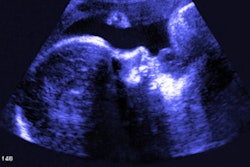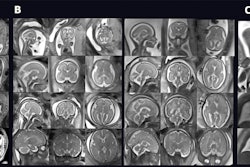
Functional MRI (fMRI) shows that prenatal maternal anxiety has a long-term negative impact on the children of women with the condition, persisting into adulthood, European researchers have found.
The findings underscore the importance of providing pregnant women with anxiety management strategies, according to a group led by Elise Turk, PhD, of Tilburg University in the Netherlands. The study was published June 29 in Brain Imaging and Behavior.
"To prevent mental health problems at population level, universal primary prevention strategies should aim at lowering maternal anxiety during pregnancy," the group urged.
The incidence and burden of mental health conditions are increasing around the world, the authors noted; in the U.K., the incidence of perinatal anxiety and depression is estimated to incur healthcare costs of almost $11,000 per birth. But the prenatal origins of mental health conditions in the children of women who suffer anxiety during pregnancy have not been thoroughly studied.
"[We] lack knowledge about the persistence of brain developmental alterations in the aftermath of prenatal exposure to maternal distress," the group wrote. "Prospective pregnancy cohorts that continue into adulthood may add incredibly valuable information, especially since several researchers have pointed out that neurodegenerative disorders, such as Parkinson's and Alzheimer's disease, may find their origin in fetal life."
To explore this area of research, the team conducted an fMRI study that included 49 28-year-old children of women whose anxiety was monitored during pregnancy using the State Trait Anxiety Inventory between 12 to 22 weeks gestation, 23 to 31 weeks, 32 to 40 weeks, and several times after giving birth (when their children were 1, 10, and 28 weeks old; 14 years old; 17 years old; and 20 years old). None of the women used selective serotonin reuptake inhibitors (SSRIs) or other drugs besides alcohol, nicotine, and medication prescribed for medical purposes.
The 49 participants were divided into two groups: those whose mothers reported "high anxiety" (13) during pregnancy at weeks 12 to 22 gestation and those whose mothers reported "low-to-medium anxiety" (36) during the same time frame. Each of the adult children underwent an fMRI exam.
The authors found that higher maternal prenatal anxiety was associated with weaker functional connectivity of medial prefrontal cortex with left inferior frontal gyrus in their children.
"We show that prenatal maternal anxiety exposure influences functional connectivity patterns of the medial prefrontal cortex in adulthood," Turk told AuntMinnie.com. "The results are concerning, because they suggest that brain alterations during development due to maternal anxiety remain persistent."
The study highlights how the adult "connectome" -- that is, the map of neural connections in the brain -- is influenced by the prenatal environment.
"Although the brain architecture continues to show plasticity throughout adult life, some biological changes that compromise flexible adaptation and resilience might already be laid down early in life," the authors wrote.
Not only is more research needed on the effect of prenatal anxiety on adult children, women need to be supported during pregnancy for coping with anxiety.
"To prevent mental health problems at population level, universal primary prevention strategies should aim at lowering maternal anxiety during pregnancy," the group concluded.
The complete study can be found here.





















